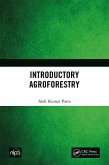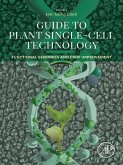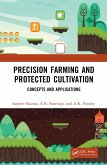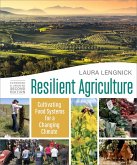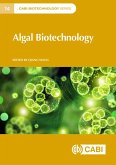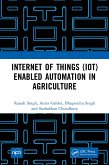The food discussion in America can be quite pessimistic. With high obesity rates, diabetes, climate change, chemical use, water contamination, and farm animal abuse, it would seem that there wasn't very much room for a positive perspective. The fear that there just isn't enough food has expanded to new areas of concern about water availability, rising health care costs, and dying bees.
In Unnaturally Delicious, Lusk makes room for optimism by writing the story of the changing food system, suggesting that technology and agriculture can work together in a healthy and innovative way to help solve the world's largest food issues and improve the farming system as we know it.
This is the story of the innovators and innovations shaping the future of food. You'll meet an ex-farmer entrepreneur whose software is now being used all over the world to help farmers increase yields and reduce nutrient runoff and egg producers who've created new hen housing systems that improve animal welfare at an affordable price. There are scientists growing meat in the lab. Without the cow. College students are coaxing bacteria to signal food quality and fight obesity. Nutrient enhanced rice and sweet potatoes are aiming to solve malnutrition in the developing world. Geneticists are creating new wheat varieties that allow farmers sustainably grow more with less. And, we'll learn how to get fresh, tasty, 3D printed food at the touch of a button, perhaps even delivered to us by a robotic chef.
Innovation is the American way. Thomas Jefferson, George Washington Carver, and John Harvey Kellogg were food and agricultural entrepreneurs. Their delicious innovations led to new healthy, tasty, convenient, and environmentally friendly food. The creations were unnaturally delicious. Unnatural because the foods and practices they fashioned were man-made solutions to natural and man-made problems.
Now the world is filled with new challenges changing the way we think about food. Who are the scientists, entrepreneurs, and progressive farmers who meet these challenges and search for solutions? Unnaturally Delicious has the answers.
In Unnaturally Delicious, Lusk makes room for optimism by writing the story of the changing food system, suggesting that technology and agriculture can work together in a healthy and innovative way to help solve the world's largest food issues and improve the farming system as we know it.
This is the story of the innovators and innovations shaping the future of food. You'll meet an ex-farmer entrepreneur whose software is now being used all over the world to help farmers increase yields and reduce nutrient runoff and egg producers who've created new hen housing systems that improve animal welfare at an affordable price. There are scientists growing meat in the lab. Without the cow. College students are coaxing bacteria to signal food quality and fight obesity. Nutrient enhanced rice and sweet potatoes are aiming to solve malnutrition in the developing world. Geneticists are creating new wheat varieties that allow farmers sustainably grow more with less. And, we'll learn how to get fresh, tasty, 3D printed food at the touch of a button, perhaps even delivered to us by a robotic chef.
Innovation is the American way. Thomas Jefferson, George Washington Carver, and John Harvey Kellogg were food and agricultural entrepreneurs. Their delicious innovations led to new healthy, tasty, convenient, and environmentally friendly food. The creations were unnaturally delicious. Unnatural because the foods and practices they fashioned were man-made solutions to natural and man-made problems.
Now the world is filled with new challenges changing the way we think about food. Who are the scientists, entrepreneurs, and progressive farmers who meet these challenges and search for solutions? Unnaturally Delicious has the answers.
Dieser Download kann aus rechtlichen Gründen nur mit Rechnungsadresse in D ausgeliefert werden.



